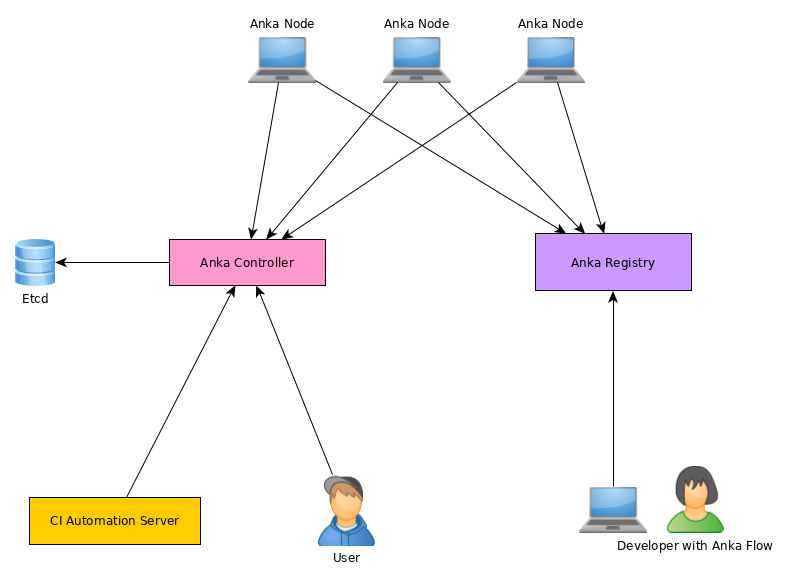Getting Started
Getting started using the Anka Build Cloud Controller & Registry
Anka Build components support heterogeneous build nodes; You can connect both Anka 2 (intel processors) and Anka 3 (apple processors) nodes to your Build Cloud Controller/Registry.
Docker and DockerHub revolutionized the way developers could build and test their software. However, Docker does not at the time of writing this support macOS. This is why we’ve created the Anka Build Cloud. The Anka Build Cloud is a suite of software which allows you to manage and store Anka VM Templates and Tags in a central repository, orchestrate on-demand (or persistent) macOS VMs for your CI/CD (or developers), and visualize usage or logs.
This is a web UI and REST API which helps manage VM Instances and VM Templates and Tags.
This is a repository for your Anka VM Templates and Tags.
These Nodes have our Virtualization software installed to run the VMs that you launch from the Controller (or through your CI/CD software). Once joined to the Controller, it will start an agent on the node to communicate and pull tasks from the controller queue.

Several of our CI/CD Plugins and Integrations require the Controller REST API.
Getting started using the Anka Build Cloud Controller & Registry
How to work with the Anka Controller and API
How to work with the Anka Registry and API
Anka Build Cloud Configuration Reference
General information about setting up High Availability for the Anka Build Cloud
Methods to protect your Anka Build Cloud Controller & Registry.
Recommended approaches to monitoring your Anka Build Cloud.
How to upgrade the Anka Build Cloud
Steps for uninstalling the Anka Build Cloud package
All about the Anka Build Cloud license tiers
Configuring your Registry to use Azure Blog Storage